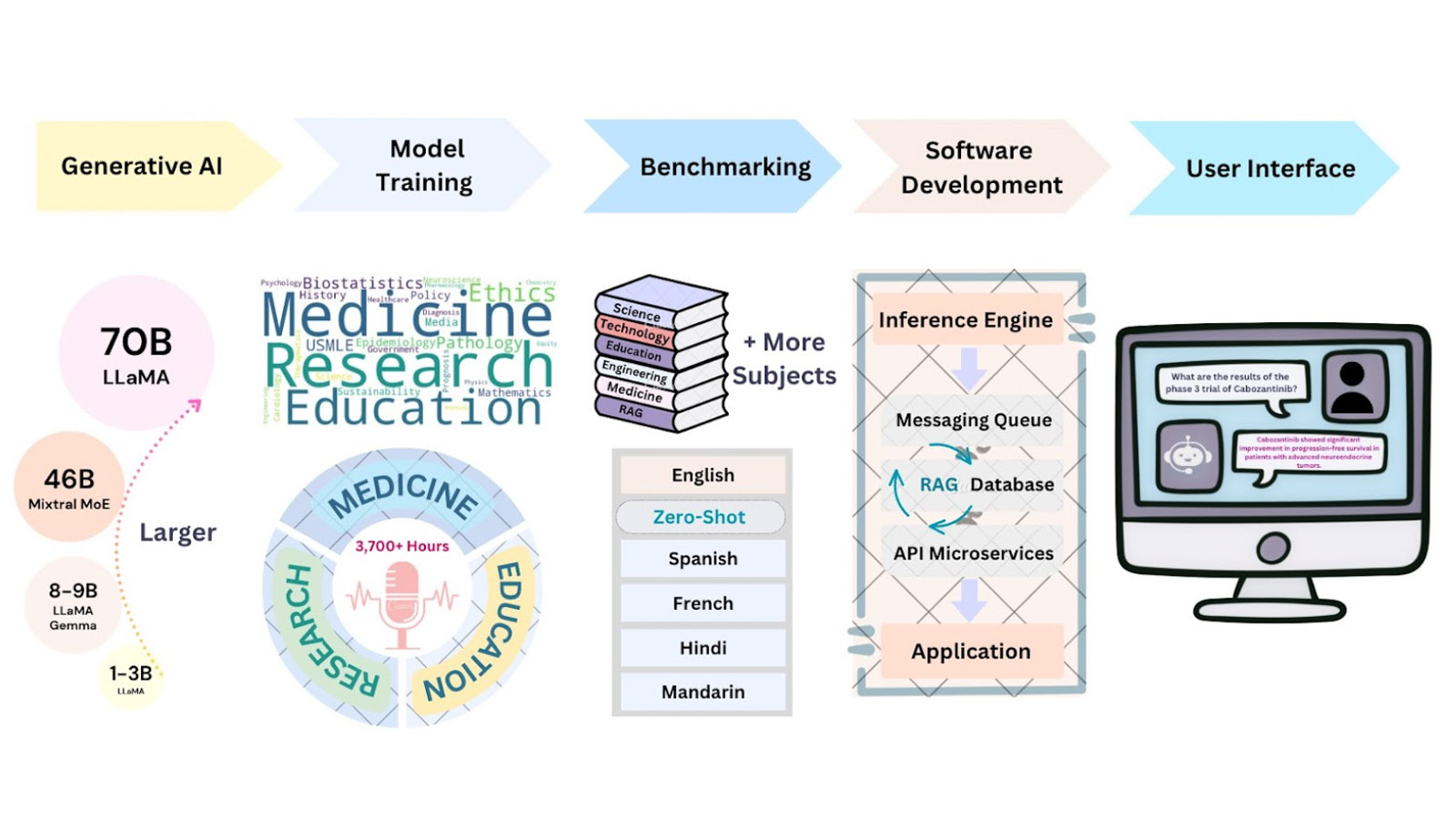
The Kolachalama Laboratory is dedicated to developing and rigorously validating adaptable machine learning methods that are tailored to the needs of human health research, thereby advancing innovations at the intersection of AI and healthcare.
Kolachalama uses BU’s Shared Computing Cluster for his ML work.
His team developed PodGPT, an AI model trained on 3,700+ hours of science and medicine podcasts. Unlike models trained only on written text, PodGPT captures conversational nuances, making health and science topics more relatable.
Trained with advanced transcription tools, PodGPT was tested across STEMM fields in multiple languages, showing improved accuracy in complex subjects. It helps users understand medical issues and public health topics without needing technical expertise, and supports inclusive science communication.
PodGPT marks a shift toward human-centered AI, offering expert-backed insights in areas like mental health, Alzheimer’s, cancer, and global health.
PodGPT is free to use with an .edu, .org, or Gmail address. For more information visit podgpt.org